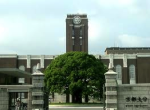 Japan
Japan
For an overview of GVN Centers of Excellence, click here.
 National Institute of Infectious Diseases, Tokyo
National Institute of Infectious Diseases, Tokyo
Toyama 1-23-1, Shinjuku Tokyo 162-8640

Center Director: Dr. Hideki Hasegawa
Member Researchers: Tetsuro Matano
Originally founded in 1892, the National Institute of Infectious Diseases aims at carrying out extensive and original research projects on a variety of contagious diseases from the standpoint of preventive medicine, improving human health and welfare by suppressing infectious diseases, and clarifying and supporting the scientific background of health and medical administration of the government. These functions may be summarized into 1) research activities, 2) reference services for infectious diseases, 3) surveillance of infectious diseases, 4) national control tests and other tests, 5) international cooperation, and 6) training activities.

Associate Director: Dr. Yasushi Kawaguchi
The Institute of Medical Science of the University of Tokyo (IMSUT) evolved from its origin, the Institute for Infectious Disease in 1967. The mission of IMSUT is to advance our basic knowledge underlying infectious diseases, cancer and other intractable diseases and to ultimately controlling them. To develop more effectively interdisciplinary research of basic life science and genomic medicine, IMSUT was reorganized on April 2000, consisting of three core departments (Microbiology and Immunology, Cancer Biology and Basic Medical Sciences), three centers (Human Genome Center, Center for Experimental Medicine, Advanced Clinical Research Center) and IMSUT Research Hospital. As a center for experimental medicine in Japan, IMSUT Research Hospital was reorganized on April 2001.
 Institute for Virus Research, Kyoto University
Institute for Virus Research, Kyoto University
53 Shogoin Kawara-cho Sakyo-ku, Kyoto 606-8507

Associate Director: Dr. Yoshio Koyanagi
The Institute for Virus Research (IVR), Kyoto University was established in 1956 for the purpose of “research on viruses, the study of scientific principles, and the application of prevention and treatment of viral diseases.” The absolute mission of IVR is elucidation of life systems through large-scale data analysis. Their major outcome is comprehensive understanding on cellular and living organism events. More specifically, IVR has contributed to variety of research progresses on generation systems of genetic and protein molecules, interferon induction responses against viral infection, immune responses against pathogens, development and maintenance of neuronal function. IVR has also provided significant contributions to the virology field, such as revelation of the direct link of human T cell leukemia virus (HTLV) to adult T-cell leukemia (ATL) as the causative agent.

Associate Director: Dr. Hirofumi Sawa
Member Researchers: Yasuko Orba, Michihito Sasaki, Michael Carr, Shintaro Kobayashi, Tadaki Suzuki
For the establishment of preemptive measures against zoonoses, a prerequisite is to identify natural host animals carrying potential pathogens and to elucidate the transmission routes and factors involved in the spread and pathogenesis of infections. As well as promoting basic research on zoonotic diseases, there is a pressing need to develop effective measures for diagnosis, prophylaxis and therapy, to widely disseminate information and technology, and to train experts for the control of zoonoses. Hokkaido University Research Center for Zoonosis Control will carry out coherent scientific and educational activities toward the conquest of zoonoses.


